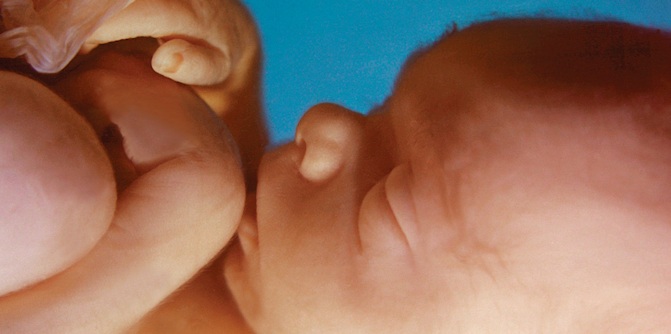Aborting unborn babies is not big business anymore in Texas.
Since the state heartbeat law went into effect Sept. 1, abortion facilities across Texas have reported a massive drop in abortions.
Whole Woman’s Health, which runs four abortion facilities in the state, saw a 70 percent to 80 percent decline in abortions over the past two months, according to the Texas Tribune.
“It’s just becoming eerie,” Amy Hagstrom Miller, president and CEO of the abortion chain, told the Tribune. “I think when people kind of know they’re seven or eight weeks pregnant or further pregnant, they’re not even calling anymore … a lot of folks are just, I think, going straight to calling Oklahoma and New Mexico and Louisiana.”
But abortion activists also admit that other women are not traveling out of state, they are choosing to have their babies instead. This means the heartbeat law is working; unborn babies are being saved from abortion deaths every single day.
Texas is the first state to be allowed to enforce a heartbeat law. State Senate Bill 8 prohibits abortions once an unborn baby’s heartbeat is detectable, about six weeks of pregnancy. It also has a unique provision that allows private individuals to enforce the law by filing lawsuits against abortionists and others who help them abort unborn babies with beating hearts.
Pro-life leaders estimate as many as 100 unborn babies are being saved from abortion every day under the law.
Other abortion facilities in Texas also have reported huge drops in abortions, including the Austin Women’s Health Center, according to the report. On its website, the Austin facility states that abortion facilities are seeing “less than half the patients they are used to seeing.”
Please follow LifeNews.com on Gab for the latest pro-life news and info, free from social media censorship.
Meanwhile, Planned Parenthood of Greater Texas has shifted its focus to expanding non-abortion services, including birth control and STD testing/treatment, the report states.
Miller complained that the pro-life law will hurt Texas abortion facilities long-term, even if a court blocks it soon. The U.S. Supreme Court heard a challenge to the law earlier this month, but it has not ruled yet. The high court previously refused to block the law twice.
Here’s more from the report:
If the Supreme Court decides to strike down the law, medical providers can go back to performing abortions up to the 20th week of pregnancy. But because it’s been hard to retain staff amid all the uncertainty, Miller said, it could take weeks to return to normal staffing. …
But even though clinics haven’t closed yet, and even if the court rules in their favor, Texas providers say they worry that the law has already had a chilling effect — on staff who want job stability, on patients who remain unclear what their rights are and on the funding and longevity of the clinics themselves.
“It’s going to take a long time for Texas to rebuild,” Miller said. “And this is the damage that is intended from this law.”
The law actually is doing the opposite. It is ending the damage committed by the abortion industry every day against unborn babies and their mothers.
For the 80 days that the law has been in effect, thousands of babies’ lives have been spared from abortion. While abortion activists say some women are traveling to other states for abortions, they admit that others are having their babies instead.
“… recent studies show that the majority of women who are prevented from reaching an abortion provider due to travel distance give birth as a result,” a group of 154 pro-abortion economists and researchers told the U.S. Supreme Court in a brief.
During the first month alone, Texas abortion facilities reported a huge drop in abortion numbers, according to research from the University of Texas at Austin. Abortion facilities reported 2,164 abortions in September 2021, down from 4,313 in September 2020, according to the research. That equates to 2,149 babies’ lives.
The law has the potential to save tens of thousands of unborn babies from abortion every year. In 2020, about 54,000 unborn babies were aborted in Texas, and about 85 percent happened after six weeks of pregnancy, according to state health statistics.








